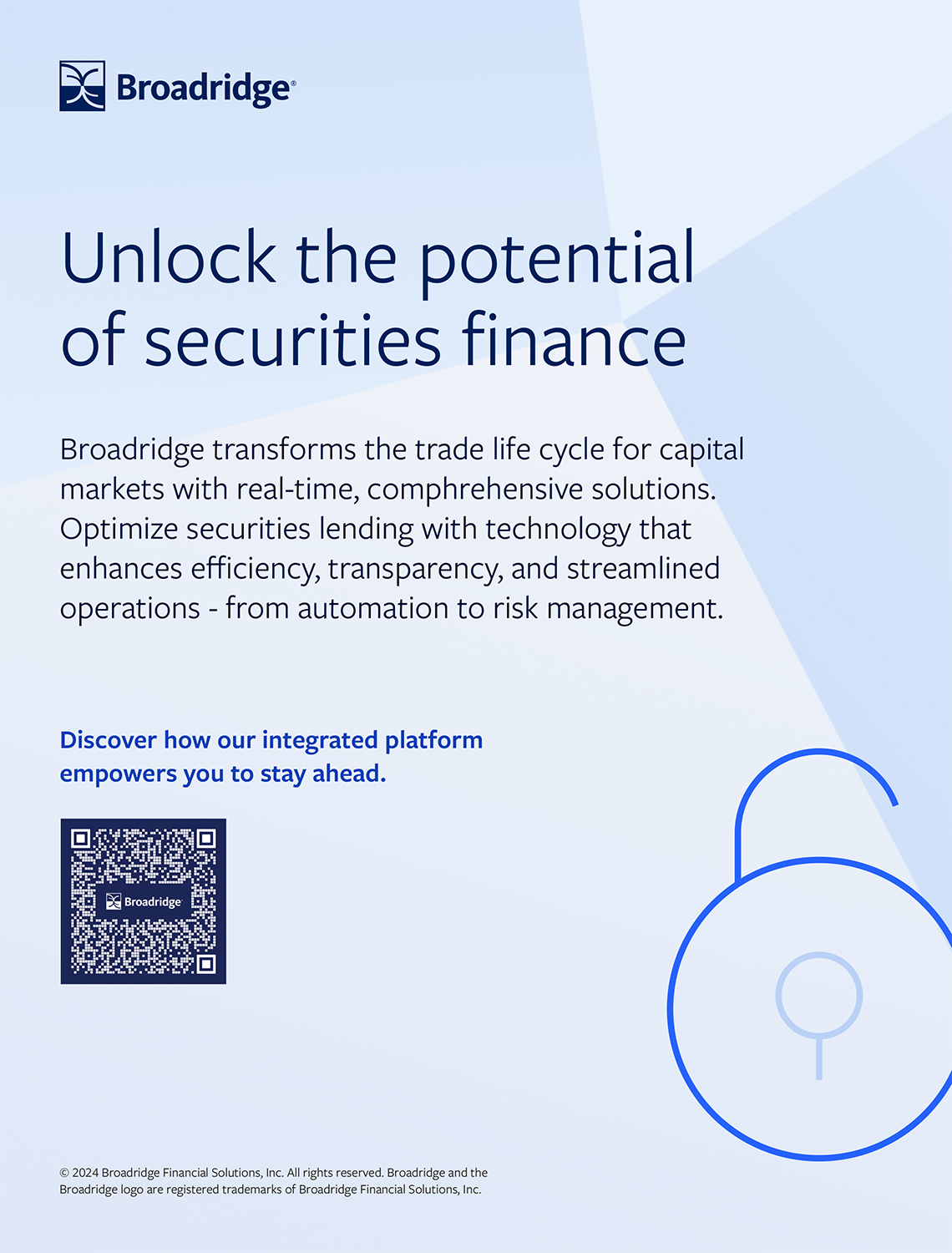EquiLend shares SFTR plans
23 November 2016 New York
 Image: Shutterstock
Image: Shutterstock
EquiLend is working on a solution to meet the reporting requirements for trades and collateral under the Securities Finance Transaction Regulation (SFTR).
The European Securities Markets Authority (ESMA) issued the level two consultation on SFTR in September, appearing to give market participants some hope that its requirements would be dialled back.
ESMA appeared to pull back on the requirement to report on collateral used as part of a securities finance transaction on a T+1 basis, as well as admit that there were still some clashes with the European Market Infrastructure Regulation.
The feedback from this second stage will be used to finalise the draft technical standards, which will be submitted to the European Commission by the end of Q1 2017. The final version of SFTR will then come into force from 2018.
Despite some relaxations of the reporting requirements under SFTR being considered, their content and timing are still expected to cause significant challenges to market participants, particularly as both sides of the transaction must comply and supply unique transaction and legal entity identifiers.
A mandatory format has been suggested for SFTR reporting, according to EquiLend, due to the need for a comprehensive series of details throughout the lifecycle of the trade, as well as market participants’ need to track, manage and report a large volume of data.
EquiLend said in a statement: “We are working with industry bodies, clients, triparty agents and trade repositories to provide an automated, consolidated, scalable solution that removes the necessity for manually intensive intervention from clients and provides transparency throughout the process.”
The trading and post-trade service provider already captures much of the information required by SFTR, meaning it can create the unique transaction identifier immediately either at the point of trade or during the post-trade comparison process.
The ESMA consultation has also confirmed that timestamps remain a required field, “but a level of tolerance can be applied”, according to EquiLend.
“The proposal is that several minutes can be applied to a timestamp field, such as execution timestamp. EquiLend provides a timestamp for all activity that clients undertake across the platform.”
The European Securities Markets Authority (ESMA) issued the level two consultation on SFTR in September, appearing to give market participants some hope that its requirements would be dialled back.
ESMA appeared to pull back on the requirement to report on collateral used as part of a securities finance transaction on a T+1 basis, as well as admit that there were still some clashes with the European Market Infrastructure Regulation.
The feedback from this second stage will be used to finalise the draft technical standards, which will be submitted to the European Commission by the end of Q1 2017. The final version of SFTR will then come into force from 2018.
Despite some relaxations of the reporting requirements under SFTR being considered, their content and timing are still expected to cause significant challenges to market participants, particularly as both sides of the transaction must comply and supply unique transaction and legal entity identifiers.
A mandatory format has been suggested for SFTR reporting, according to EquiLend, due to the need for a comprehensive series of details throughout the lifecycle of the trade, as well as market participants’ need to track, manage and report a large volume of data.
EquiLend said in a statement: “We are working with industry bodies, clients, triparty agents and trade repositories to provide an automated, consolidated, scalable solution that removes the necessity for manually intensive intervention from clients and provides transparency throughout the process.”
The trading and post-trade service provider already captures much of the information required by SFTR, meaning it can create the unique transaction identifier immediately either at the point of trade or during the post-trade comparison process.
The ESMA consultation has also confirmed that timestamps remain a required field, “but a level of tolerance can be applied”, according to EquiLend.
“The proposal is that several minutes can be applied to a timestamp field, such as execution timestamp. EquiLend provides a timestamp for all activity that clients undertake across the platform.”
NO FEE, NO RISK
100% ON RETURNS If you invest in only one securities finance news source this year, make sure it is your free subscription to Securities Finance Times
100% ON RETURNS If you invest in only one securities finance news source this year, make sure it is your free subscription to Securities Finance Times



